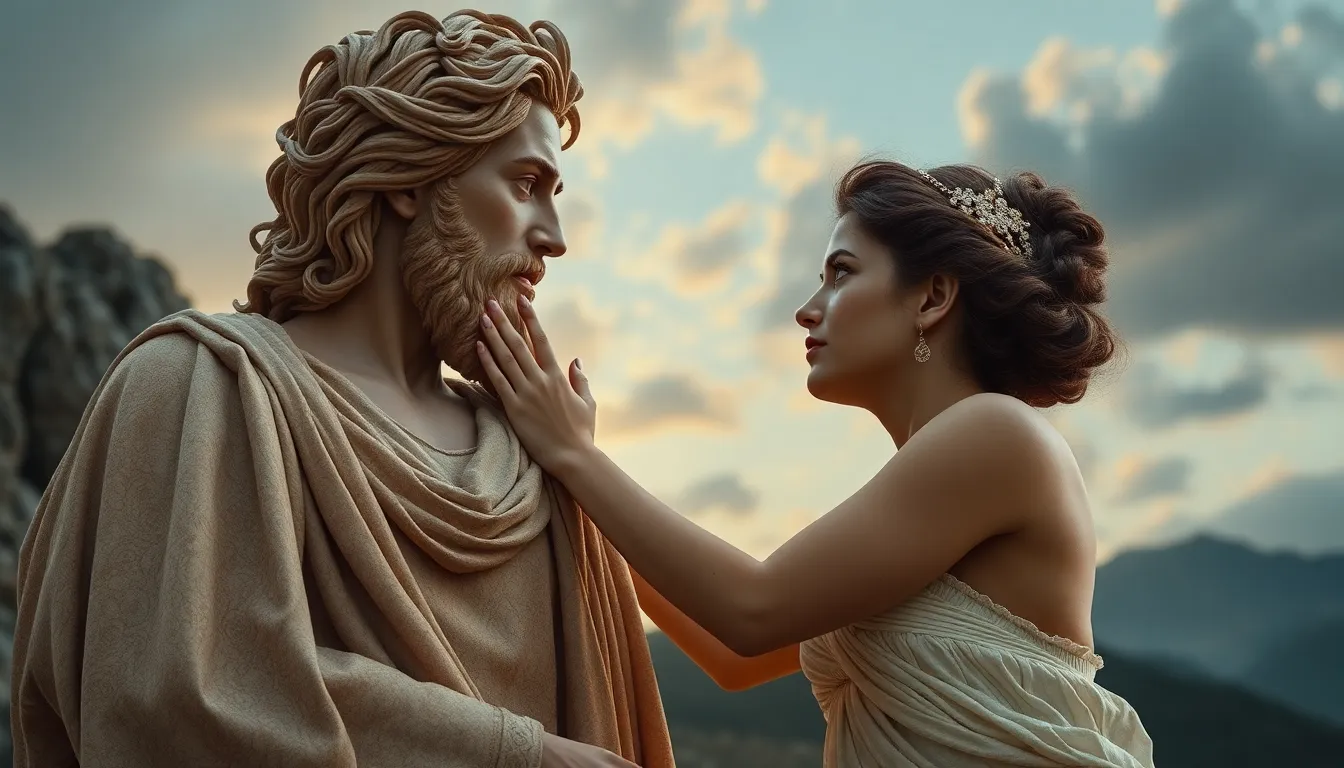Orpheus and Eurydice: A Love Story That Echoes Through Time
I. Introduction
The myth of Orpheus and Eurydice is one of the most poignant love stories in Greek mythology, embodying themes of love, loss, and the power of music. Orpheus, a legendary musician and poet, and Eurydice, a beautiful nymph, share a tragic tale that has resonated through the ages. Their story has not only captivated the imaginations of ancient Greek audiences but has also left an indelible mark on literature and culture throughout history.
This article aims to delve into the origins, narrative, symbolism, and lasting legacy of Orpheus and Eurydice, exploring why their love story continues to inspire and move people today.
II. The Origins of the Myth
The myth of Orpheus and Eurydice can be traced back to ancient Greek literature, with its roots intertwined in the cultural practices and beliefs of the time. Orpheus is often considered the archetype of the tragic hero, whose exceptional talents and deep emotions set him apart yet also lead to his demise.
Variations of the myth exist across different civilizations, highlighting its universal themes. In some versions, Orpheus is the son of Apollo, while others suggest he is a Thracian prince. Regardless of the specific details, the core elements of love and loss remain consistent.
Key themes introduced in ancient texts include:
- The power of music to transcend boundaries
- The inevitability of death
- The conflict between fate and free will
III. The Tale of Orpheus and Eurydice
The love story of Orpheus and Eurydice is a tale of passion and tragedy. Orpheus, known for his enchanting music, falls deeply in love with Eurydice, a beautiful nymph. Their love flourishes, and they marry, promising to be together forever.
However, their happiness is short-lived. Eurydice tragically dies after being bitten by a snake on her wedding day. Orpheus is devastated, and his grief drives him to seek her in the Underworld, determined to bring her back to the land of the living.
Orpheus’s descent into the Underworld marks a significant turning point in the myth, as it showcases his determination and the depth of his love for Eurydice.
IV. The Journey to the Underworld
Orpheus’s journey to the Underworld is both perilous and poignant. Armed with his lyre, he plays music that moves all who hear it, including the denizens of the Underworld. His music softens the hearts of Hades and Persephone, the rulers of the Underworld, who are touched by his sorrow and artistry.
During his encounter with Hades and Persephone, Orpheus pleads for Eurydice’s return. The couple is moved by his love and grant him a condition: he may take Eurydice back to the living world, but he must not look back at her until they have both reached the surface.
V. The Moment of Choice
The moment of choice is a pivotal part of the myth, embodying the themes of trust and doubt. As Orpheus ascends from the Underworld, he is overwhelmed by fear and uncertainty. Will Eurydice truly follow him? Is she behind him? These doubts lead him to make a fateful decision.
In a moment of weakness, Orpheus turns to look back at Eurydice just as they are about to escape. Tragically, he witnesses her fading into the shadows of the Underworld, lost to him forever. This act of looking back symbolizes the fragility of trust and the consequences of succumbing to doubt.
VI. Symbolism and Themes
The myth of Orpheus and Eurydice is rich with symbolism and themes that explore the deeper aspects of love and existence:
- Love and Loss: Their love is profound yet ultimately doomed, reflecting the idea that true love can endure even in the face of death.
- The Interplay Between Life and Death: Orpheus’s journey signifies the thin line between the two realms, as well as the longing for connection that transcends mortality.
- The Role of Fate and Free Will: The story raises questions about destiny and the choices we make, illustrating how free will can lead to tragic consequences.
VII. The Legacy of Orpheus and Eurydice
The legacy of Orpheus and Eurydice has endured through centuries, influencing countless works of art, literature, and music. Their story has inspired various adaptations, including operas, ballets, and films, each interpreting the myth in unique ways.
Some notable influences include:
- Monteverdi’s opera “L’Orfeo,” which is a seminal work in the opera genre
- Romantic poets like John Keats and Rainer Maria Rilke, who drew on the themes of longing and despair
- Modern films and theatrical productions that reinterpret the tale for contemporary audiences
The enduring appeal of their love story lies in its emotional depth, resonating with anyone who has experienced love and loss.
VIII. Conclusion
In summary, the myth of Orpheus and Eurydice is a powerful tale that encapsulates the essence of love and the heartache of loss. It reminds us of the fragility of human connections and the profound impact of our choices.
As we reflect on this timeless story, we find ourselves compelled to explore the themes of love, fate, and the human experience further. The myth of Orpheus and Eurydice continues to echo through time, inviting us to delve into its depths and discover the beauty and tragedy that lie within.




